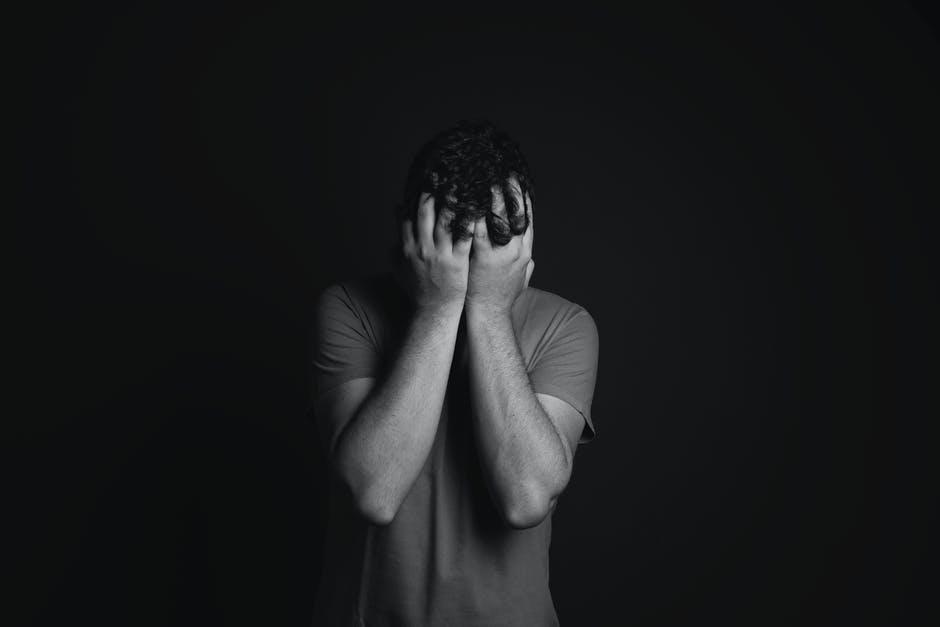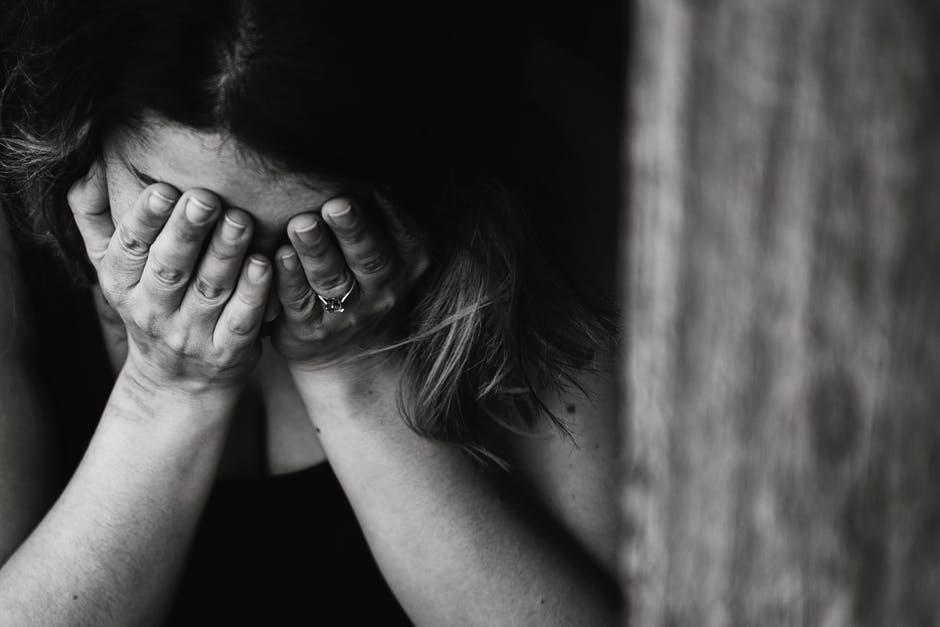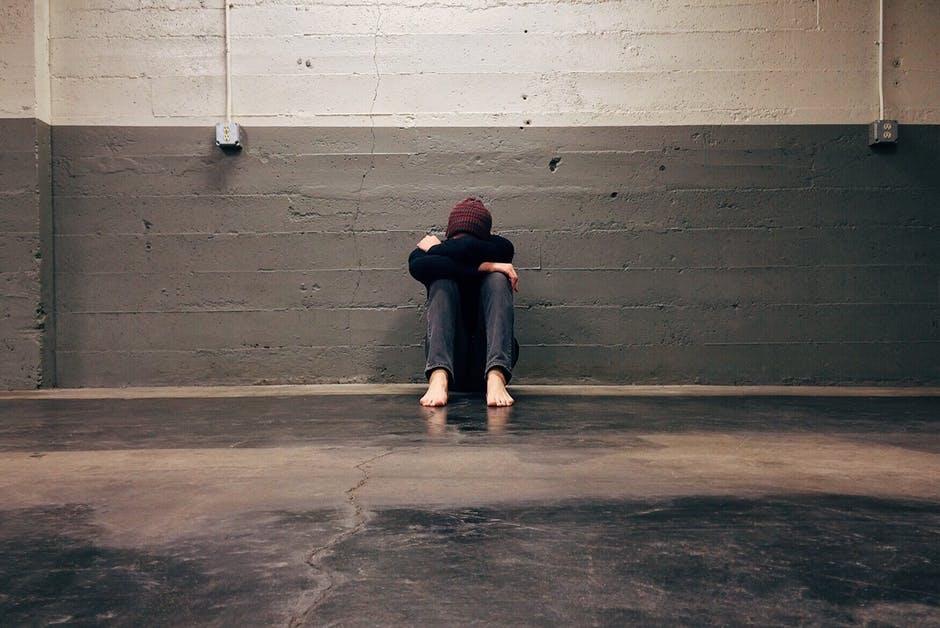Dealing With Anxiety? 10 Helpful Anxiety Tips That You Should Consider

Let me guess what anxiety is to you.
Before we begin, it is pertinent for us to consider the word’s meaning.
The Merriam-Webster dictionary defines anxiety as;
An abnormal and overwhelming sense of apprehension and fear often marked by physical signs (such as tension, sweating, and increased pulse rate), by doubt concerning the reality and nature of the threat, and by self-doubt about one’s capacity to cope with it.
This in itself is self-explanatory as anxiety is a common part of life that most grown individuals must go through or experience.
In visual terms, anxiety simply is a state where the individual is super sensitive to detecting possible threats that may never occur. For instance, the fear of public speaking. In fact, studies show that about 77% of the adult population has some level of anxiety regarding public speaking. Now worse than this anxiety itself is the fear of being anxious.
For instance, you’re going to give a speech at school, you’ve prepared properly for it, but you have a tingling flutter in your stomach. you suddenly realize that there is a fear to be careful, and cautious. You soon begin to consider all the numerous possibilities of something bad that might happen.
As these thoughts race through your mind, your heart suddenly starts pounding and your heart racing, your skin sweating, and as the time draws near, it feels like you’re dissociating from yourself, and disintegrating into a whimpering old human that is not you.
You say to yourself, keep it together, but it only gets worse. So then you give in completely to panic mode as you wish for your wobbly hands and feet to behave.
As the audience stares back at you, you start to feel nauseous, uneasy, and boxed.
With time, this leaves a polar effect in your social engagements and you start avoiding lots of places.
With time, you subconsciously cement into your mind that you’re lonely, introverted, and isolated.
Does this remind you of you?

Then this article is just for you. You’ve got anxiety disorder.
Trust me, it’s not a terminal illness but a very common human problem, more common than you think. Right now, statistics show that one in 14 individuals across the world suffers from anxiety disorder every minute. Anxiety in itself is a mental health problem and it costs the government about 14billion dollars every year to address this issue alone in the United States.
Why, you’d ask?
Well, the truth is this, anxiety is not just the state of being anxious. It goes far beyond the individual and ‘the rejects’ unashamedly in the society. When you truly consider it, its impact is far more tremendous and its consequence on an individual’s life can be negatively overwhelming to see.
Anxiety can lead to depression, suicide, school dropout, body negativity, low self-esteem, and many other social vices that we now have to grapple with within today’s society. Because there is little or no awareness of the subject matter itself, a lot of individuals term anxiety as a bunch of untrained nerves and immature tantrums that need to be gotten over. That too, very quickly, and very quietly.
Because there is a lot of misinformation on the matter of anxiety, it is quite imperative to differentiate between what is termed Anxiety and what is truly termed Anxiety disorder.

The Concept of Anxiety and Anxiety Disorders
Anxiety is an emotion that we all get when we’re in stressful situations. For example, when you’re faced with a snake in the wild or a big bear in your living room, you instinctively have a feeling of dread and wish to save yourself. This is normal and fine as your body needs to find a form of security and hence sends a message to your head to activate your nerves. Anxiety helps us deal with such kinds of emergencies in life because it resonates with our fear sensors.
It is called an anxiety disorder when these emotions are taken to the extreme in situations that don’t pose a real-life threat.
When you worry about everything going on around in your life and cannot control this, then you may have an anxiety disorder
As with all mental health-related matters, anxiety disorders are deeply caused by environmental factors, biological factors and psychological factors, and sometimes, few previous life experiences. All individuals with anxiety disorders tend to have irrational and excessive fears and inexplicable excessive feelings. Inspired by all these mentioned above, some things can be done to lower or reduce anxiety disorder completely.
Types of Anxiety Disorder
Generalized Disorder
This is the most common of all types of disorder in grown adults. Generalized disorder is characterized by excessive worry about general everyday things for a space of time. Generalized Anxiety can be manifested in physical tensions like muscle pains, and physical weakness. It can be characterized into two: mild/moderate generalized disorder and severe generalized anxiety disorder.
Individuals that suffer from mild/moderate generalized disorder are still able to thrive in their everyday activities without being completely put down by the unbearable weights of anxiety. On the other hand, individuals with a severe generalized anxiety disorder may find it difficult to perform simple everyday tasks.
Social Anxiety Disorder
This is also called social phobia and is often characterized by everyday self-consciousness and embarrassment when faced with social interactions. Individuals who suffer from this have the assumption that they’re negatively judged by others in a social situation.
Socially anxious individuals worry about embarrassing themselves at all times in social situations, especially those that involve public speaking.
Self-Diagnosable Symptoms Of Prevalent Anxiety Disorder That Are Commonly known To Affect Individuals
- Irritation
- Hypervigilance
- Lack of concentration
- Rushing & unpleasant thoughts
- Restlessness
- Rapid breathing (hyperventilation)
- Sweating\Trembling
- Feeling tired or weak.
- Difficulty concentrating or thinking about anything other than the current worry.
- Having difficulty sleeping.
- Having gastrointestinal (GI) issues.
- Having a strong desire to avoid things that cause anxiety
- Safety behaviors
- Avoidance
- Fast heartbeat
- Trembling
- Sweating
- Upset stomach or nausea
- Trouble catching your breath
- Dizziness or lightheadedness
- Feeling that your mind has gone blank
- Muscle tension.

An individual’s chance of acquiring anxiety disorders can be increased by a combination of genetic and environmental variables. If you have or have had any of the following, you may be at a higher risk.
Anxiety is a common part of life for most individuals. However, those with worry disorders suffer extreme anxiety, fear, terror, and panic in ordinary settings. These disorders impact a person’s emotional behavior, as well as create physical symptoms. Mild anxiety can be uncomfortable and unclear, whereas severe anxiety on the other hand can have a significant impact on daily life.
You’re anxious, but you look like you’ve got it completely put together. In the United States, 40 million people suffer from anxiety problems. It’s the most frequent type of mental disease in the United States. Only 36.9% of patients with anxiety disorders obtain therapy.
In Africa on the other hand, some individuals tend to reveal their anxiety physically as seen in the symptoms listed above.
Anxiety can hit anywhere whether in school, church, class, or a small or big social gathering.
Coping resources can help you remain healthy and lower anxiety. These methods have been tested and proven scientifically to help anyone overcome the basic stages of anxiety.
How to Overcome Anxiety
1. Halt
Yes, you heard that right. Stop whatever activity you’re on and just try to relax. Check whether you’re hungry, angry, lonely, or tired.
2. Try Breathing
I know you’ve heard this a lot but trust me, it is not completely over-flogged as much as it is effective. Try to breathe in for 4 seconds, hold air in for 7 seconds and breathe out. Repeat the circle intentionally until you feel at ease again. While focusing on counting inside your head, you automatically take away the feeling of anxiety that comes with having other repetitive thoughts.
3. Try Starting Small On The Overwhelming Big Things
If you’re anxious about a work deadline or something huge that looks like it can never be fixed, draw up a subtle reminder that big things started as little things. Permit yourself, and start small on it. With time, the overwhelming things would have been over. One small thing at a time can make your problem seem more manageable
4. Try To Eliminate The Object Of Fear Or Unease
Oftentimes, all you need is a simple process to get rid of the tension of anxiety. Taking yourself away from that physical or mental tension can help you destroy existing anxiety intentionally.
5. Practice Mindfulness
Study shows that practicing mind exercises or conscious reflection on your environment could help to reduce the hormone that produces stress— in other words, anxiety. Practicing mindful meditation even for as little as 3 minutes could help you work your way out of anxiety.
6. Be Kind To Yourself
This is very imperative and should not be overlooked at all. Practicing self-care would help you avoid situations that trigger your anxiety. Knowing what works best for you and how to manage your mind is a part of self-care. Staying away from things and people that upset you is quite pivotal.
7. Try Journaling
Writing about a feeling of insecurity can help you process and understand completely the reason for your anxiety and how best to curb it.
Other Tips To Overcoming Anxiety
8. Remember That You can’t Control Everything
It is important to realize this without placing unhealthy pressure on yourself.
9. Positive Thoughts
Try to focus on your being intentional about positive thoughts by changing your mindset.
10. Move
Move your body, wiggle your feet, try a half-baked dance pattern, just do something exciting to shake you up physically out of your anxiety.
Some lifestyle changes you can incorporate to help tackle anxiety are;
- Sleep at least 8hours a day.
- Try exercising
- Relax your muscles
- Chant positive thoughts out loud.
- Try to reach out to a counselor or professional therapist.

All images are sourced from pexels.com
Disclaimer: This article is not a replacement for medical consultation and proper medical advice should always be sought first before any self-diagnosis is made.
The one who spells Afrolady from the larynx of her pen. She’s a high spirited, cultured and ingenuous African child, whose writing drops an unimaginative creative splash on history and carves the indignation and memories of Black women.

